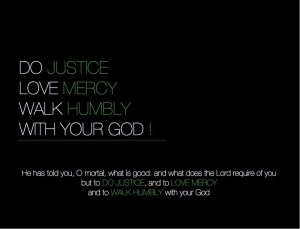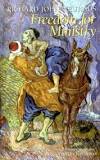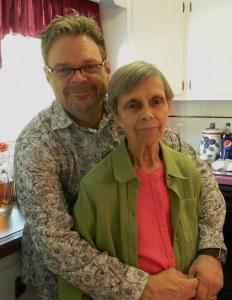That it would happen on Valentine’s Day is atrocious; but that it happens at all, on any day in the United States of America is the absurdity of all absurdities. According to data from the Gun Violence Archive, a total of 30 mass shooting incidents have occurred in 2018 as of February 14th.
Think of it:
30 mass shootings within 45 days;
one mass shooting every day and a half.
Regardless of our political stance, ideology or posture, surely we are troubled by these heinous and senseless acts of violence. Surely, our hearts cry, “Enough is enough!”
Christ, whom we believe to be God incarnate, said “Blessed are those who mourn, for they shall be comforted!” Today, we mourn with and pray for the families in South Florida; we mourn with and pray for the families of Sandy Hook, Tyler Texas, Las Vegas, Orlando and every other city and town across our nation that has been so indelibly affected by these types of acts.
But we must ask: is mourning and praying enough?
Of course, I believe in the power of prayer, but I also believe, confidently, that God calls us, and equips us, to be about it;
God calls us to be about bringing “God’s Kingdom on earth as it is in Heaven.”
Scripture gives us a glimpse into what God’s Kingdom will be like:
The wolf will romp with the lamb,
the leopard sleep with the kid.
Calf and lion will eat from the same trough,
and a little child will tend them.
Cow and bear will graze the same pasture,
their calves and cubs grow up together,
and the lion eat straw like the ox.
The nursing child will crawl over rattlesnake dens,
the toddler stick his hand down the hole of a serpent.
Neither animal nor human will hurt or kill
on my holy mountain.
The whole earth will be brimming with knowing God-Alive,
a living knowledge of God ocean-deep, ocean-wide. Isaiah 11:6-9
I am confident that being about bringing God’s Kingdom on earth as it is in heaven does not include militarization of the world’s populace.
I am confident that being about bringing God’s Kingdom on earth as it is in heaven doesn’t include de-funding programs that offer hope and help to persons with mental illnesses and their families.
I’m quite certain that being about bringing God’s Kingdom on earth as it is in heaven doesn’t include ripping the safety net out from under the most vulnerable among us.
I’m sure that being about bringing God’s Kingdom on earth as it is in heaven doesn’t have anything to do with covering up and making excuses for pervasive abusive masculinity and oppressive patriarchy.
Being about bringing the Kingdom of God on earth as it is in heaven does not have anything to do with the proliferation of white supremacy and everything to do with the eradication of racism of every form.
Being about bringing the Kingdom of God on earth as it is in heaven means pulling down the strongholds that prevent affordable housing from being built and living wages from being instituted; it means bridging the chasm between the “haves” and the “have nots” not widening it.
Being about bringing the Kingdom of God on earth as it is in heaven means putting a halt to predatory lending practices that intentionally target and harm the poor; it means holding pharmaceuticals and physicians accountable for endangering the lives of the human population for the sake for the dollar.
I’m confident that being about bringing the Kingdom of God on earth as it is in heaven has everything to do with lifting up the poor, providing sustenance and education to every child and opening the doors of the prisons for those who are unjustly incarcerated.
And my friends, I am positive beyond measure that being about bringing the Kingdom of God on earth as it is in heaven has everything to do with turning our weapons into plowshares and rest assured, that includes AR-15s. (i.e. plowshares are used in gardens and being about bringing God’s Kingdom on earth has much to do with stewardship of the earth and its resources.)
I believe that all of the “ills” mentioned above, along with countless others have brought us to this place. What place is this? It’s a place of fear and diminution. The battlefield has come home; it’s now in our own backyard; in our schools and in our places of employment. The battlefield is on our streets, it’s permeating our social media and it’s showing up in our houses of worship!
And what do we do? We buy more guns, build thicker walls, put up more gates, employ more metal detectors, enlarge the nuclear arsenal, become less trusting, get more segregated and stake our claim on the earth’s resources! (all the things that are the antithesis of the gospel.)
We spend exorbitant amounts of energy and resources on making ourselves feel secure. Yet, we are less secure than we have ever been.
I do not believe the answer is more weapons. I believe the answer lies in men and women who claim to be Christ followers being about “bringing God’s Kingdom on earth as it is in heaven.” (Almost every protestant church in the world prays these words weekly if not daily: “thy kingdom come, thy will be done, on earth as it is in heaven.” I ask, are they not more than mere words?)
My friends, “being about it” means doing more than offering our thoughts and prayers to those who have been affected by horrendous acts of violence.
“Being about it” means allowing the gospel to move from our ears to our heart, out through our hands and feet; it means getting involved; being socially active and politically engaged.
As proclaimers of the Good News of the Gospel, we are called to be renovators and reconcilers, we are called to be redeemers and reframers.
(And lest you get your senses hurt by my closing sentences, please understand I have crafted it purposely and don’t say them lightly.)
What the hell are we waiting for? For Christ’s sake, isn’t it time we be about it?









